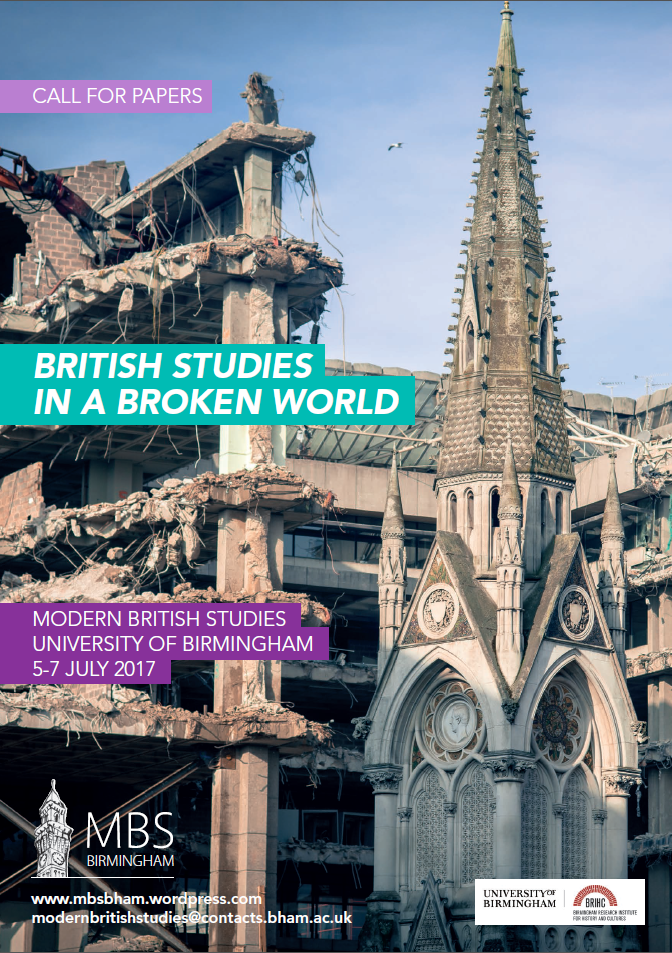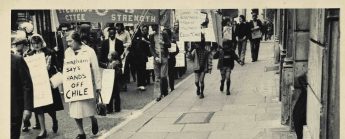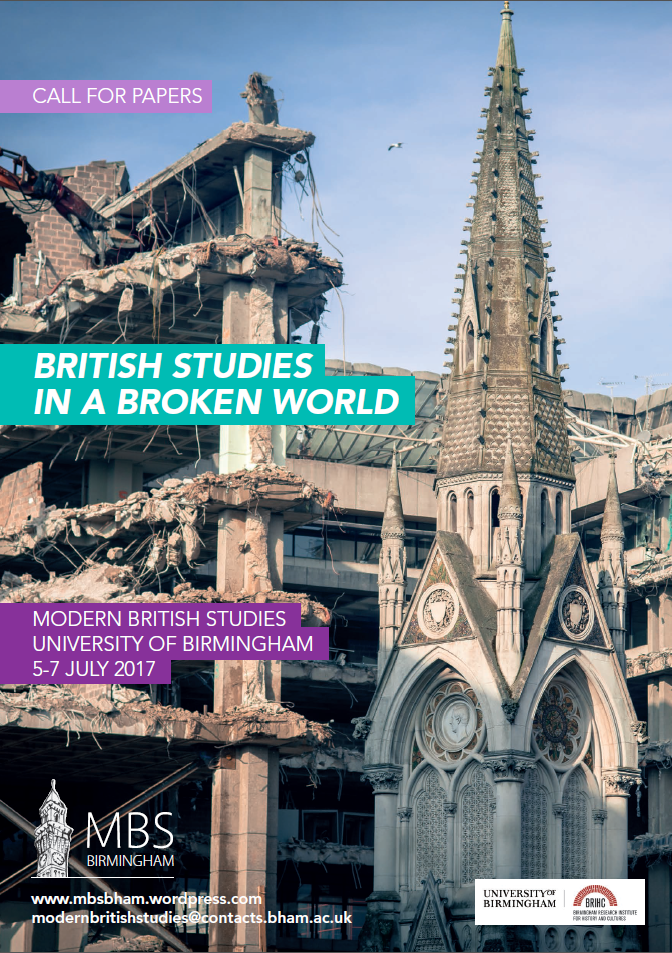
Chris Moores
While reaching the end of one project I have been, for some time, thinking about different forms of right-wing, non-extremist activism in post-war Britain. Such interests recently took me to the papers of Patrick Wall, Conservative MP for Haltemprice and then Beverley in East Yorkshire.
As this blog shows, I am still processing the mass of material that I found there, there is much I have not read, so this blog is a first – and uneven – and slgihtly ‘listy’ – attempt to start thinking through a Lost World of Conservatism that can be glimpsed there.[1]
Wall is probably best known as a member of the Monday Club, chairing its Defence Committee for fifteen years. But his papers also offer glimpses, fragments and hints of an extensive world of conservative mobilization which are difficult to account for in our dominant frameworks for thinking about political and social activism.
The MP for Haltemprice was a controversial figure on the right of the Conservative Party. His defence of Rhodesia following its Unilateral Declaration of Independence in 1965 and contrubued support for Ian Smith’s regime, as well as his enthusiasm for Enoch Powell following the ‘Rivers of Blood’ speech, marked his divisive enthusiasm for the forms of ‘ethnic populism’ which Bill Schwarz has argued was linked to a ‘popular reverie’ of white sovereignty ‘overseas’.
Symbolic of his divisiveness, a tour of British Universities during the late 1960s and early 1970s proved disruptive. Wall considered certain disciplines and academics within British Universities to be deeply ‘subversive’, aligning himself with a wider assault on ‘Marxist’ intellectuals which typified certain strands of conservative thought at the time.[2]
Wall’s critique of the University reached its zenith on 3 May 1968 when his wife was, according to The Times newspaper, tripped, kicked and spat-on by student protesters at Leeds University Union.
The chaotic aftermath of the speech was captured by broadcasters and Wall’s postbag swelled with correspondence eager to lambast ‘long-haired’ student protestors, while his wife received threatening letters warning of further violence.

Although it created less of a shockwave, parallels can be draw between the letters sent to Wall following the incident and the contents of Enoch Powell’s postbag in the wake of his ‘Rivers of Blood Speech’.[3] Letters written to Wall moved seamlessly from the conduct of students to the fate of Rhodesia, from questions about higher education funding to a decline in religious values, from an unease about generational change to evidence of the communist subversion of ‘foreign extremists’ destabilizing Britain and England.
One correspondent complained, ‘many of us who have not had the advantage of university education are wondering exactly what sort of advantage, to themselves and to their country the expenditure of our money upon these students is supposed to confer’, another objected to the ‘sick of the weakness of making excuses for the “with it” mentality’. ‘So many of those that rule our country’ one letter explained, ‘appear to be scared of a small minority of anti-British; anti-Christian; pro-communist (and, in many cases, pro-United(?) [sic] Nations), fanatics whose sole purpose is the ruin of our country’.
Such letter-writing is significant in itself. Carolyn Steedman observed that letters are ‘pieces of text that are most intimately connected to biological bodies’; they have weight. According to Bill Schwarz the letters responding to Powell’s speech demonstrate ‘configurations of whiteness intensifying’ at a bodily level. And letters to Wall are cetainly revealing in such respects (especially those on the colonies and immigration). But I am also interested, as a historian of activism, about those that took their anxieties one step further, who sought to not just articulate their private thoughts into public policies through sympathetic MPs, but to mobilize and organize. Those who printed pamphlets, produced stationary headings and campaigned even if for a short moment. This was activism, even if was haphazard, deeply problematic and challenging to trace.
Wall was, to some extent, defined by his associational life. At the start of his political career, he volunteered for the London Sea Scouts and Sea Cadets with which he was involved from the 1940s onwards. Wall had served in the British Navy during the Second World War, even acting on attachment with the US Navy during Operation Overlord. His interest in the threat of invasion, anxiety about subversion, interest in Cold War technologies and concerns about ‘aliens’ also found expression in his membership of organiztions; he was from 1955 a committed member of the ‘Flying Saucer Club’, held a subscription to ‘Flying Saucer Quarterly’ and maintained career-long commitment to understanding UFOs.[4]

But in discussing Wall with final year students this week, our eyes were drawn to a range of organizations glimpsed in the papers which we struggled to place in out categories of post war mobilization.
It is possible to detect well-connected faith-based organizations, but these were vastly different from the faith-based groups working, for example, in international aid and development. As well as more well-known, reactionary bodies like the Society for the Protection of Unborn Children or the National Festival of Light, the papers also document The Order of Christian Unity (c. 1970), featuring a well-connected group of prominent religious and political figures seeking to roll back the ‘so-called moral reforms of Parliament’, which ‘pressurized Christians into living with a social framework contrary to their beliefs’. Wall who was well-known as a traditional Catholic attracted the attention of a range of other, similar groups with various objections to abortion, euthanasia, divorce legislation and moral decline (including The St Thomas More Group, The Lamp Society, and The Keys of St Peter) about which I know little.
Wall formed organizations himself. He drove a Catholic lay movement in the early 1970s entitled ‘Pro Fide’ seeking to represent ‘a voice for the silent majority’ opposing ‘the modern trend of rejection of authority an substitution of self-interest disguised as conscience’. He created ‘Sword of the Spirit’ during the late 1950s. This was a Catholic organization which hoped that an assertion of Christianity might ‘shape the new Africa’ allowing British Catholics to continue their ‘very direct responsibility’ there while alerting Catholics in Britain to their responsibilities in Africa. Its ‘Africa Committee’ included academics from the School of Oriental and African Studies, Queen Mary University of London, and the African Studies Department of the Colonial Office.
Wall engaged with different Cold War mobilizations some of which were more prominent than others: Families for Defence, Western Goals, the British Committee for Free Vietman, the World Anti-Communist League mongst others. His papers reveal that Sir Walter Walker’s Civil Alliance, often used as evidence of 1970s Cold War paranoia and fear of domestic subversion, was continuing to mobilize and provide civil defence training well into the 1980s, well after the ascent of Thatcher was meant to have nipped such initiatives in the bud.
We know little of snappily titled organizations like the ‘National Cleansing Crusade for the Restoration of Capital Punishment, the outlawing of Sodomy, and Stiffer Penalties to Fit the Crimes, including Recompense and Corporal Punishment’ (tag-line: Shame to all men in Church and Government who degrade Britain through the act of Sodomy), which pop up in his papers. The Campaign for Justice in Divorce (1979) lobbied Wall to support the end of maintenance in divorce cases (except for children) and the removing the ‘concept of fault’ from divorce legislation which had served to ‘punish husbands’ especially those with second wives, which sounds strangely attuned with more contemporary mobilizations complaining about the ‘gender inequalities’ faced by men.

These organizations are difficult to trace as well as define, we just see the edges of them in Wall’s papers, further documents on such bodies and their protagonists are difficult to track down. But, I also need to think harder about what to do with such groups. In the past, I might have been, perhaps, a little content to see them as cranky reactionary manifestations of those whose politics and values were being slowly undermined by generational change. Interesting as symbols of discontent, or a sense of loss, or prisms through which cultural shifts could be seen, but people whose politics was bounded rather than enabled by party politicians.
Yet as astutely articulated by my new colleangue Mo Moulton public and media discourse around the EU referendum and the varied manifestations of ethnic populism which seem an important feature of contemporary politics are making me think. Contact with different activists, many of whom used a comparable tone and critique, was a feature of Patrick Wall’s Parliamentary career which lasted for most of the post-war period. We only see fragments of such groups– are these tips of icebergs or the sole extent of mobilization?
Comparisons of the present with the past is inheritently anti-historical and should largely be avoided, so rather than suggest continuities between these mobilizations and, for example, some of the thinking that can be seen within domestic politics surrounding the EU referendum, I wonder if we might, instead, extend our concern about modern echo chambers of social media interactions into our archives and histories. Why were my students so surprised by documents from these mobilizations, why did they jar with a literature on conservatism and activism they had been studying?
The organizations which can be found in Wall’s papers are not well represented within the Conservative Party archives, reflecting the Party’s various efforts to downplay and contain the activities of those acting on its extremes. Moreover, the correspondents with Wall that were so hostile to the Universities in 1968 were hardly likely to deposit papers in the libraries of those institutions in the manner of more progressive, respectable, organized or well-established NGOs might do or those from the Labour movement did.
Wall’s archives reflected his own idiosyncrasies; he catalogued and organized much of the content himself. But as Powell’s letters show, Wall was not the only MP to receive such content in his postbag.
It may well be these are all we see of such forms of malcontent, anger and frustration, but the paucity of the archive represents our difficulty in accommodating such bodies into our conceptualization of post-war activism. These were not agents of elite-driven expertise representing a new technocratic governmentality; they were too fragmented to be seen as a forms of social movement, too ‘respectable’ to be fully identifiable with the far-right, difficult to find within serious studies of the Conservative Party’s grass roots.
At this stage, I reserve judgement on what to conclude about this world. It needs further more detailed, precise exploration. Too much of my evidence is partial and piecemeal at this stage; it may stay this way. This is a blog about a world I do not yet understand, I suspect many of the threads I am pulling at will be loose ends, but more than ever, this seems a good time to start unravelling them.
[1] I realize I have pinched this from Lawrence Black (via Raphael Samuel) who used this phrase to describe the Young Conservatives of the 1950s. Lawrence – I hope you don’t mind.
[2] Patrick Wall, Student Power (London, Monday Club, 1968).
[3] As astutely discussed in the work of Camilla Schofield, Amy Whipple and Bill Schwarz.
[4] Even one letter on this subject suggested that the ‘decline’ of Western powers could be seen in the warnings of extra terrestrials. Wall himself wrote in 1986, ‘Personally I believe that the chances are that UFOs do exist and do come from a more advanced civilization than our own though where this may be remains a mystery’










